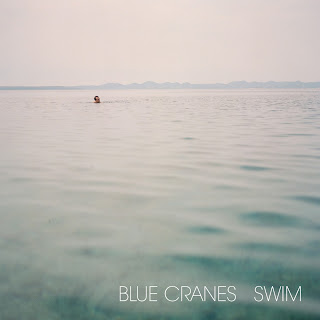Let's see if blogging will get the Verizon guy - now 2 hours and 22 minutes past his window of arrival time - to show up.
Belle and Sebastian played in Pittsburgh on Saturday. It was their first time in town, and my first time ever at Stage AE. Decent place, I suppose. They get you coming and going the way other big outdoor venues do, but it didn't seen as rigid and staffed by meatheads the way that place in Burgettstown is. (I"m not even sure of the name of that place anymore.)
After driving all the way over there to find that all of the overpriced parking garages and lots were full, Jennie and I rode over to the far side of the North Side, past the Warhol Museum, up and around the corner, near East Ohio Street and the Priory (if the latter is still there, anymore). Then we walked back.
We missed maybe the first 15-20 minutes of Yo La Tengo but still got a heavy, heavvvvvvvvvy dose of droning rock. We heard the drone in E, the drone in A, the long riff in D.... Seriously, it was a pretty decent time. I think I was just wiped out after a day of work, not having dinner before I left and the struggle of getting there. (The Pirates were playing too, which explains the lack of parking.) And every song started to sound like the grand finale of the set, with all the surging, churning chords and feedback. Maybe it's like a Cecil Taylor performance, where you must be there for the beginning because it won't make as much sense entering late.
But when Belle and Sebastian hit the stage, they had the audience from the first high register chug of the bass. Yo La Tengo had been a slow build up to what was now going into overdrive. The sound was great, the band was tight - seven of them, along with four string players and a trumpet/French horn player. Most significantly, Stuart Murdoch was incredibly charming. Very light-hearted and engaging.
He broke the ice by making cracks about the flashing Bayer sign on the side of Mt. Washington, which kept flashing "instructions" as he called them. "Wear your safety goggles" was the one that got the first laugh. "When should you wear your safety googles," he wondered. "During a sexual experience?" (I'm paraphrasing.) Earlier in the day, he jumped on a PAT bus to see where it would take him, because he likes getting lost and trying to find his way back. He wound up in Highland Park, where he came across a lot of yard sales, though he didn't buy anything. Kind of makes me wonder what most B&S fans would do if they spotted him walking about Highland Park. Probably nothing because they wouldn't recognize him.
Another cool moment came when he started talking baseball, and appreciating the Pirates, leading to a two-chorus rendition of "Take Me Out to the Ballgame," complete with keyboardist Chris Geddes using a ballpark organ voice on his keyboard. In someone else's hands, this would have been cheesy, but it only made Murdoch an even more likable person.
I'm not completely up on the post-Isobel Campbell run of albums that B&S did, so I don't know how much they played from Dear Catastrophe Waitress and Sing About Love. Also, when I interviewed Geddes for City Paper he mentioned that they might be doing a few new, as-of-yet-unreleased songs. So they might have shown up too. Regardless, the group energy and fun never dissipated.
By the time they did "The Boy With the Arab Strap," Murdoch has already gone into the audience to sing with people, who sounded like they were singing along into the mike (shades of old punk rock shows!). So for this jaunty number, between 20 and 30 people jumped onstage and started dancing along to the song. It was mostly young ladies who were more of the oh-my-gawd-I-can't-believe-I'm-up-here type than hip kids who didn't want to betray their excitement. Nevertheless it was a good time. Even on my caffeine-deprived, empty-but-not-yet-hungry stomach, there was no cynicism coming out. The band played for at least 90 minutes, starting at 9:30 and doing the first encore ("Get Me Away From Here, I'm Dying") around 11:00. We started making our way out of the venue at that point because I didn't want to get too caught up in traffic and I wanted to make sure there was enough time to pick up some wings at Gooki's.
That faraway parking spot turned out to be the right choice after all. The Pirates game was letting out (WE WON!) as we were walking against the throng of baseball fans, including myriad seniors who had come down in charted buses. The way back didn't seem quite as awful as the walk down, and after calling in an order for my dinner, I was able to get some take-out on the way home. No time or energy for a high ball though (and as I found out a night later - no gin either!).
And Awaaaaay We Go!
13 years ago






















